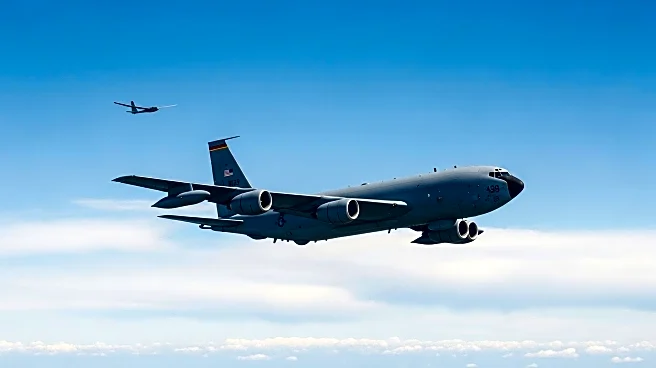What's Happening?
A serious airprox incident occurred involving a US Air Force Boeing KC-135, which had to perform an evasive maneuver to avoid a collision with an undetected glider near RAF Mildenhall. The KC-135 was conducting an ILS approach when the pilot noticed a glider converging from right to left, approximately 10-20 feet above. The pilot executed a 30° right bank to avoid the glider before rejoining the glideslope. The UK Airprox Board's analysis revealed that the separation between the aircraft was reduced to less than 50 feet vertically and 0.1 nautical miles horizontally, emphasizing the role of providence in preventing a mid-air collision. The incident highlights ongoing safety concerns related to glider pilots turning off transponders to conserve battery power, despite operating near busy military bases.
Why It's Important?
The incident underscores the critical importance of transponders in ensuring aviation safety, particularly near military air traffic zones. The decision by glider pilots to deactivate transponders for battery conservation poses significant risks, as it prevents integration with airborne collision-avoidance systems and hinders air traffic controllers' ability to provide accurate traffic information. This event serves as a reminder of the need for continuous use of transponders, especially given the availability of affordable, high-capacity lithium batteries. The safety of military and civilian aircraft could be compromised if such practices continue, potentially leading to more severe incidents.
What's Next?
The UK Airprox Board may recommend stricter regulations or guidelines regarding the use of transponders in gliders, particularly in proximity to military bases. Increased awareness and education for glider pilots about the limitations of relying solely on electronic conspicuity devices and see-and-avoid practices could be implemented. Military and civilian aviation authorities might collaborate to enhance safety protocols and communication strategies to prevent similar incidents in the future.









